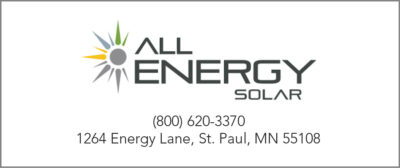With the recent wildfires, thinking about how to limit pollution has been top-of-mind. Many people are looking for ways to reduce their carbon footprint and help the planet. Installing solar panels is a great way to make your home more environmentally friendly. To help you get a better understanding of solar energy in your home, here are some frequently asked questions regarding solar panels for residential use.
Why should I switch to solar power?
Solar is a clean, renewable source of electricity that promotes local job growth and supports energy independence. By going solar, you are helping your state meet important goals to get more renewable energy on the grid. Solar electricity is reliable, noiseless, and adds value to your property without increasing your property taxes.
How do solar panels work?
The sun shines down on the solar panels. Inside the panels, photons cause electrons to separate from their atoms and create direct current (DC) energy. A device connected to the solar panels, called an inverter, then transforms this DC power into the alternating current (AC) we use as electricity. From there, the electricity produced by solar panels enters our homes and businesses the same way electricity from the local power grid does.
How long do solar panels last?
A solar panel’s current estimated lifespan is 35–40 years, which falls in line with the lifespan of most premium residential roofing materials. However, most manufacturers recommend that their panels be replaced when the panel efficiency drops below 80%—typically around the 25 to 30-year mark—which is well beyond the estimated payback period for your solar photovoltaic investment.
How much do solar panels cost?
It’s impossible to set a one-size-fits-all price on solar installation. Each property has its own energy needs and design configurations to take into account. How many panels are needed to cover all the energy requirements for the property? Can that number of panels fit on the roof? Should ground-mounted solar be a consideration? Are there trees or other larger buildings nearby that could cast a shadow on your panels? The only way to find out how much solar panels could cost for your property is to get a custom evaluation.
How long does it take for solar energy to pay for itself?
That depends on a variety of factors, including the size of the proposed location for the solar panels, energy usage of the property, solar incentives, net metering agreements, and more. Typical timeframes can range between eight to 15 years but could be sooner. When your solar project is designed, it will include a customized payback timetable.
Can solar power my entire property?
This depends on your individual energy needs and your property’s unique features. In many cases, solar energy systems can be designed to cover all of a property’s daily energy needs. That said, sometimes it’s also worthwhile to install a solar array that partially covers the property’s energy needs. Even a small system can help a property owner save money or reduce their carbon footprint.
Will solar panels increase my property value?
Buying a solar energy system will likely increase your home’s value. A Berkeley National Laboratory study found that solar photovoltaic panels are viewed as upgrades, just like a renovated kitchen or a finished basement, and home buyers across the country have been willing to pay a premium for a home with an average-sized solar array. As for third-party-owned systems, it appears that the impact is largely neutral but can occasionally add value, especially for prepaid leases.
Is Minnesota too cold and snowy to invest in solar energy?
There isn’t a significant sunlight difference between some traditionally “warm-weather” regions and some “cold-weather” regions. Minneapolis has the same number of sunny days as Jacksonville, FL. Boston has a similar number of sunny days as Birmingham, TX. The Midwest gets plenty of sun, and various government incentives for installing solar make the deal that much more attractive.
If I don’t use all the energy I generate, doesn’t it just go away?
Net metering is a process by which the excess energy from your solar panels is sent back into the grid in exchange for credits on your utility bill. You can over-produce electricity during the sunniest times of the year and have a surplus of credits to fall back on during the winter months.
Will solar panels damage my roof?
This myth likely arose from isolated incidents in which solar panels were incorrectly installed on roofs that were already compromised. The truth is, properly installed solar panels (i.e., connected to the rafters) actually help to strengthen the roof by providing extra bracing support. A good installer will send out engineers to inspect every inch of your roof. A credible firm would never set up panels on a faulty roof.
Am I better off waiting for the price of solar to drop?
This myth stems from the idea that the cost of solar installations will continue to decrease. While it’s true that costs have dropped significantly over the years, recent manufacturing and supply chain volatility has proven that we can’t expect prices to always decrease. Even as technology increases efficiency, the prices charged by installers and component manufacturers can only go so low. Waiting could also mean missing out on incentives that make solar more affordable.
If you are thinking about installing solar panels, give us a call! We would be happy to connect you with the professionals at All Energy Solar.

